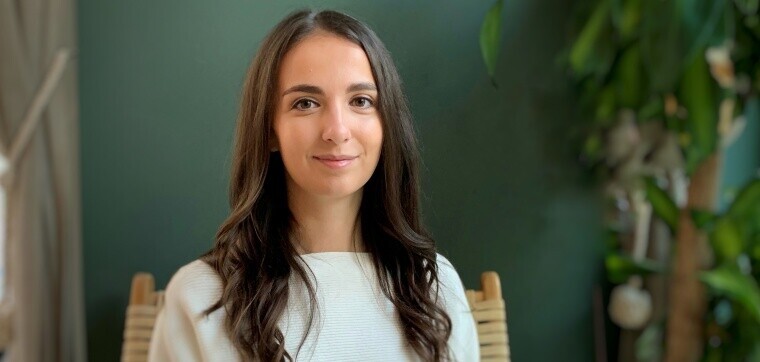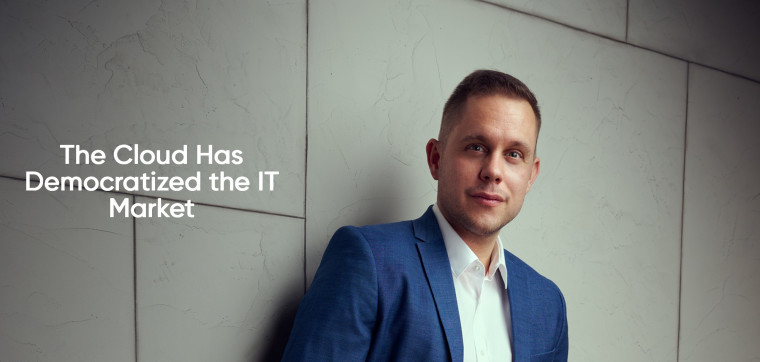Since October 2022 Softline has been operating under the brand name Noventiq.
“I think it’s important to provide reassuring answers, not only to specific challenges, but also to bring out unstated, latent needs,” says Petra Csikós, account manager at Softline Hungary. How is this happening and what is its significance for the future? She explains it in detail in this interview.
What attracted you to the IT industry?
Similarly to my family, I studied economics, but I didn’t choose this field just because of my environment. From the beginning, my interests were split between real and humanities subjects and I thought that, as an economist, there would be many fields open to me. During my higher studies, I worked in several traineeships, which is how I came into contact with the field of taxation and then found a job in this profession. At the same time, I saw that IT was an integral part of business operations and I was interested in the sales arena, so I tried my hand in this sector. I’ve never regretted that decision even once.
How did the change affect you?
The industry held no fears, because I just about grew up with gadgets in my hands. At the same time, getting onboarded was made a lot easier by my colleagues, who were extraordinarily helpful. I found myself in an inclusive community, where colleagues consider each other as equals. In such an environment, the first few months flew by almost unnoticed, and I was quickly able to pick up the pace.
What are your responsibilities as an account manager?
Part of my job is contacting and liaising with new clients. As a first step in the process, I get to know the company’s main activities and operations, and perform profiling. As a result, I can approach them with solutions that really reflect their needs. Proposals are discussed face-to-face, taking into account specific needs, IT infrastructure and industry challenges, so we can get an accurate picture of what solutions we can help the company with. But the process doesn’t end there; I remain the client’s primary point of contact, providing ongoing support. They’ll get an expert who has up-to-date information on both their existing IT systems and planned service implementations.
How would you describe your job?
My job is extremely varied. On the one hand, I deal with different companies; on the other hand, they cover a wide range of industries, from finance to pharmaceuticals to agriculture, to name just a few examples. In my work, my goal is precisely to show companies the potential of public cloud services, regardless of their industry.
You work primarily with small and medium-sized enterprises. What is your experience in this field so far?
I think it’s particularly important for SMEs to focus on IT, which is essentially the key to their survival. In this context, IT security needs to be a priority, as cyber-attacks can have serious consequences, regardless of the size of the company, which jeopardise production and day-to-day operations.
That said, I believe it’s important not only to provide reassuring answers to specific challenges, but also to identify latent needs that aren’t formulated yet, as well as possible gaps. With proper preparation and consultation, we can shed light on these hidden areas and offer a tailor-made solution. By taking preventive steps, we can ultimately save clients a lot of inconvenience and significantly increase the efficiency of their day-to-day business operations.
Why do you think the IT sector is so attractive to young people these days?
Just like me, the newer generations are growing up with smartphones and laptops in their hands, essentially unaware of a world without gadgets and advanced technologies. It’s an attractive career for them, because they are at home in this world. In addition, there is a clear appreciation of digital skills, which won’t go away in the future. With IT skills and experience, there are plenty of career paths open to young people, so I think everyone can find what they are looking for here.
How much of your spare time is dominated by technology?
Since I’m constantly in front of a screen at work, I try to set limits to my use of gadgets in my spare time. I like to do sports; my favorites are CrossFit and running. Spending time with family and friends is also relaxing, whether it’s travelling or just getting together. However, I make a conscious effort not to watch events from behind a screen, but to get lost in the moment, instead of constantly taking photos and videos.









